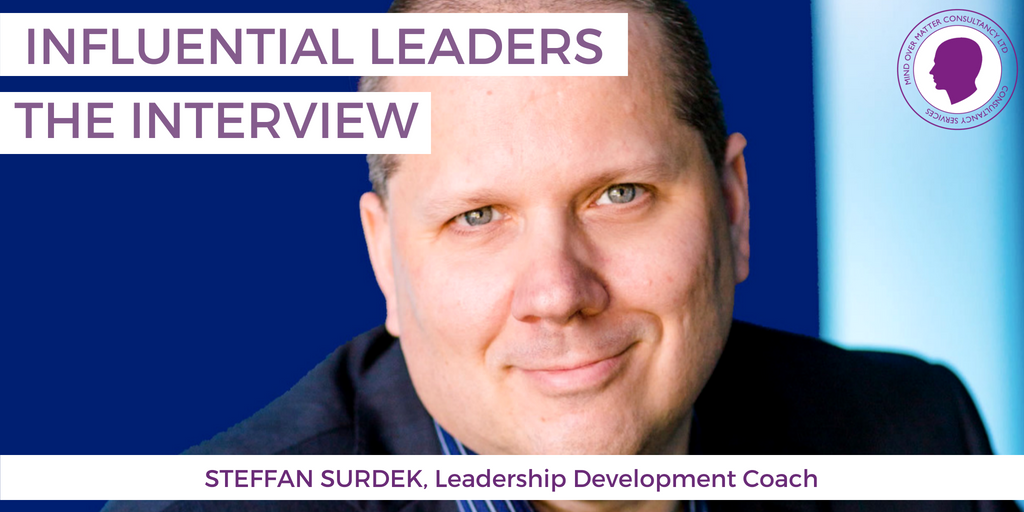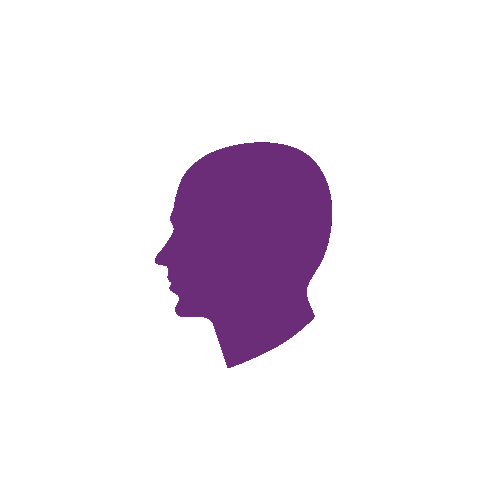Steffan Surdek
A leadership development coach who believes in doing the work you love first and the money will come later.

Steffan Surdek is an in-demand leadership development coach and corporate trainer. His drive is to expand the notion of leadership to include each member of the team.
As a widely recognized principal consultant, his work has a strong business impact. Steffan helps reshape cultures and guide them in becoming more collaborative and efficient.
Steffan believes connecting with people at a personal level is the key that allows him to contribute to a greater cause. His passion is to make a real and sustainable difference with his clients in all aspects of their lives.
Steffan often speaks at global conferences about co-creative leadership and the power of teams. He believes that his passionate and dynamic storytelling style engages audiences and makes the learning stick.
Steffan, Welcome to the Leadership Interview
How do you start your day?
I typically start my day around 5:45 am to get to work. The first thing that I do every day is waking up my daughter, shower, have breakfast, wake up my son and drive my daughter to school on my way to my next destination.
When I go to clients, I try to take some time to myself when I get there to do a 15–20 minute meditation to ground myself before I start my working day.
I often also check-in early in the morning with my coordinator to see where we are at on various things and what she needs from me.
What was your first job and what is the worst job you’ve ever done?
My first job ever was pumping gas in a local marina when I was a teenager. I remember even back then I had some leadership and initiative. The first summer I worked there I was paid a fixed amount of money for working weekends or for working a full-week plus tips.
The second year, because I had kind of redefined the job in the first year, it became an hourly paid job instead of a daily rate which allowed me to make more money.
If I can make a little joke here, my favourite thing to do was flirting with the daughters of the boat owners and they always made sure their parents tipped me well before leaving! J
My worst job was when working as part of a methodology team in 2010. Our management team at the team treated experienced team members as juniors and we could not bring all that we had to give.
I have done all sorts of work such as pumping gas, working in summer camps with kids, teaching English to adults, working in a community center. I find it kind of ironic my worst job ever came 15 years into my professional career.
What advice would you give to others about furthering their careers?
Do not worry about how much you are getting paid when you start. It is better to worry about doing the work you love and the money will come later.
Have a clear idea of what you are trying to accomplish in the short, medium and long-term (although the last two can change). Then make sure the work you are doing will lead you towards where you want to go.
I would even tell you to try to know your goal in life and find work that is in service of that. You will enjoy yourself a whole lot more professionally! I see too many people that tell me they are completely different at home than at work or that seem to settle for the job they have.
Who inspires you and why?
This is a hard question for me because people often ask me this expecting to hear someone mainstream as a response.
I get inspired by the people that surround me in my life. Whether it is a client that is showing determination in the face of adversity, experiencing growth or showing courage.
I get inspired by the energy of others that show me possibilities I have not yet seen or considered by their actions.
To get inspired though, I need to be in contact with them and experience being with them.
Do you think a talent to lead is nature or nurture?
I think that it is a bit of both.
One of my core beliefs is that leaders create leaders around them so, in this case, it is definitely teach, nurture and unleash people to allow them to fully step into their leadership potential.
On the other hand, some people have a natural gift for leadership as well.
How can a leader fail? Do you have a personal example?
Oh my god, I have many of them!
Let’s start with one. Last year was my first full year of running my own company. I failed my team a few times by not having certain conversations with colleagues at the right time. This created frustration for people.
I also failed them by not setting a clear enough direction and by trying to share leadership too much with them.
It created chaos and it led up to a very hard meeting for me where I got to see and hear how angry people were at me.
This led me to take a little more charge of things and set a clearer direction at the risk of people not wanting to come on board. The team changed and evolved since but I will remember this lesson for a while.
I think leaders truly fail when they do not take ownership of their own impact, their own words and their own actions on the people they lead.
I feel that some leaders act as if they can say and do whatever they want but that is not true.
It comes down to a very simple question: What does your leadership create? Engagement or compliance?
What are your greatest strengths and weaknesses?
Let’s try identifying two each:
Greatest strengths:
- I can see and hear people in a very fine and detailed way. In a few conversations, I can read very deeply into people. What lights them up? What scares them? What is their belief system? What is their leadership potential? Putting a lot of that together helps me coach people and shift them out of their comfort zone to allow them to grow.
- I am very creative and I can execute on a wide range of things. I have been writing the last 5 years or so and it comes easy to me now. I still have my technical skills so I can build websites or shoot professional looking videos.
I think what fascinates me lately about both of these strengths is they give me a lot of range in what I can do. I used to be a very technical person. I had soft skills but nothing like what I can do now.
Greatest weaknesses:
- I can be very demanding of others. When I can be very demanding of people especially if I am paying them to do work for me. I expect these people to live up to my expectations and standards and that can be a lot to ask of people. With my clients and colleagues, I have learned to be less of that in service of the work we are doing together but it can still come out at times.
- I can overly trust people and sometimes, I get taken advantage of. I live a busy life and have lots of things to take care of so when I delegate, I delegate fully. It can often reach a point that when I know you have the ball, I will not even check if things are done. I just mentally assume they are done. Although it can be a strength, it can also come back and bite me as well.
What do you find most challenging about being a leader?
The kind of work I do forces me to define my leadership in very different ways. I am a leader in different ways in many different places in my life.
In my business, my colleagues allow me to lead (and not) as I own the business. With my clients or in training courses, I have no authority over anyone so leadership is in how to bring ideas, influence people and help them grow.
I find that I have the two main challenges as a leader. The pressure I put on myself around having integrity between what I write in articles or what I say in training courses and talks and how people experience being with or around me.
The second challenge is in having the courage to bring the unspoken conversations to the forefront. This is in all aspects of my life such as with my spouse at home to conversations with business partners and clients.
What are you most proud of?
My children and my relationship with them. I used to be more impatient with them when they were younger. I followed a one-year coaching course about five years ago and it changed me as a parent and as a person. When I see my relationship with them and the tools I have to support them, I am really proud and grateful at the same time.
Professionally, I am proud of the work that my colleagues and myself are able to do as part of Pyxis Cultures. We do work that is both meaningful and transformative for our clients. I am also proud of how we complete each other and of the safe bubbles that we are able to create together in certain contexts with clients.
What’s your biggest self-indulgence?
Not sure what to answer here. I think it would be taking any kind of time for myself period. I have a very busy life and do a lot of different things.
Although I am enjoying myself and am passionate about the different things I do, self-care feels like a luxury for me.
When I do take that time, I enjoy a nice long deep tissue or shiatsu type of massage. Another thing I enjoy but do not take as much time for is taking some time to do some woodworking projects.
